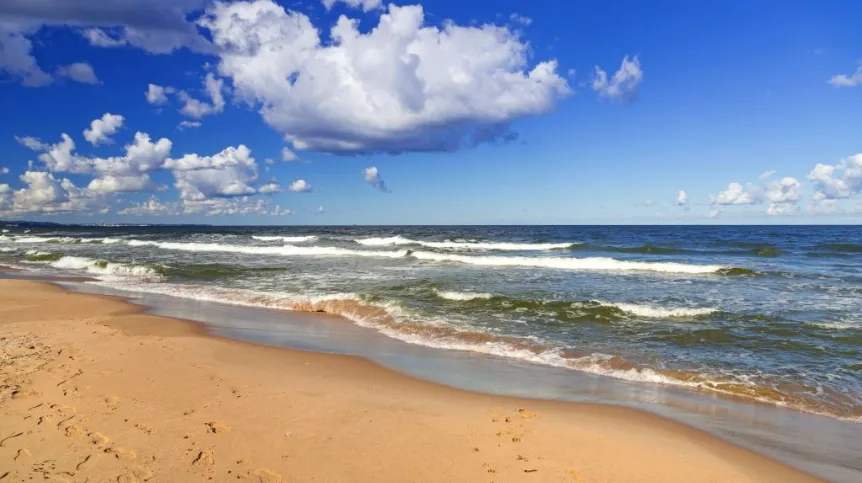
Four grey seals, born in the Hel sealarium of the Marine Station of the Institute of Oceanography, University of Gdańsk, started an independent life in the wild on the beach in Czołpino in the Slowiński National Park last Tuesday - announced the Marine Station of the Institute of Oceanography, University of Gdańsk (IOUG) and WWF Polska in a release.
"This year\'s offspring from the Hel facility - Omułek, Ostoja, Oceanografia and Okrzemka - released to the natural environment, from the first day started +working+ for expanding the knowledge of survival strategies of young seals, gathering important scientific data" - explained Dr. Iwona Pawliczka from the Marine Station in Hel. The researcher added that the daily activities of animals are monitored through satellite transmitters. This way, they provide scientists with valuable information useful in protecting the species - on their geographical position and migration routes.
The researchers report that the size of the Baltic population of grey seals is increasing. Factors contributing to this trend include their effective protection and improvement of the marine environment. Researchers have noted a gradual return of these animals to the Polish coast, especially in the area of the Gulf of Gdańsk. In 2016, researchers recorded the first case of the birth of grey seal in the mouth of Przekop. Seal mother was a female born in the sealarium in 2010. At the age of six she give birth to probably her first offspring.
"I observed the seal on Wednesday, February 24" - reported in the message Jan Wilkanowski of the WWF Blue Patrol. - "A seal pup lay on a sandy islet, sucking mother\'s milk. This was confirmed by the analysis of my photos at the Marine Station in Hel. So we have the first observation in many decades of a seal pup with its mom" - he said.
Marine Station collects data on migration of young seals since 2002. Since that time, nearly 30 seals, which are descendants of the Hel seals have been released into the Baltic Sea.
The first months of wandering of the animals released last Tuesday can be followed at www.wedrowkifok.wwf.pl.
Monika Łaskawska-Wolszczak of WWF Polska advises that if you encounter a seal on the beach, you should observe it from afar. The presence of seals on the shore is natural and should not cause concern. The appearance of a human is a stressful situation for seals. Łaskowska-Wolszczak also encourages to notify the WWF Blue Patrol of the observation, by calling 795-536-009, or Marine Station in Hel, phone number 601-88-99-40.
PAP - Science and Scholarship in Poland
szz/ krf/ mrt/
tr. RL













